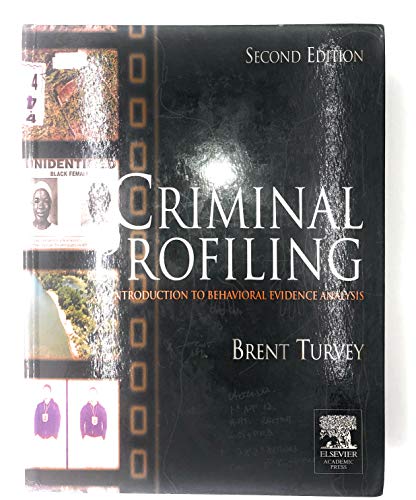Sinopsis:
Criminal Profiling is a unique work centered on the deductive profiling method developed by the author and motivated by the limited knowledge available regarding the criminal profiling process. Deductive profiling is different from other forms of profiling in that it focuses on criminal profiling as an investigative process, solving real crime through an honest understanding of the nature and behavior of criminals. It approaches each criminal incident as its own universe of behaviors and relationships. Throughout the text, the author illustrates and emphasizes the most crucial tenet that any good criminal profiler should adhere to: the enthusiastic desire to investigate and examine the facts. This Second Edition contains the same core knowledge that made the first edition a best-seller while introducing a wealth of new material. This expanded and thoroughly revised edition includes a completely new set of case studies including the Sam Sheppard trial. New chapters include expanded coverage on false reports, psychological autopsies, criminal profiling in court, stalking, domestic homicide, sexual asphyxia, and staged crime scenes. Contributors include: John J. Baeza, Eoghan Casey, W. Jerry Chisum, Dana S. La Fon, Michael McGrath, Wayne Petherick.
Acerca del autor:
Brent Turvey, PhD is the author of Criminal Profiling: An Introduction to Behavioral Evidence Analysis, 1st, 2nd, 3rd and 4th Editions (1999, 2002, 2008, 2011); co- author of the Rape Investigation Handbook, 1st and 2nd Editions (2004, 2011), Crime Reconstruction 1st and 2nd Editions (2006, 2011), Forensic Victimology (2008) and Forensic Fraud (2013) - all with Elsevier Science. He hold an MS in Forensic Science and a PhD in Criminology. He is a full partner, Forensic Scientist, Criminal Profiler, and Instructor with Forensic Solutions, LLC, and The Forensic Criminology Institute.
Dr. Turvey also maintains a caseload of femicides (e.g., sexual homicides, gender motivated homicides), pre-femicidal violence, trafficking, and human rights cases in Latin America. Many of these are related to drug trafficking and human trafficking. This involves the implementation of the UN Model Protocol for Femicide Investigation in Latin America, with The Forensic Criminology Institute’s Behavioral Science Lab (BSL). In operation since 2019, the BSL collaborates with USAID, The United Nations, and The Attorney Generals Office in Bogota DC, providing international support and training to attorneys , investigators and forensic professionals.
"Sobre este título" puede pertenecer a otra edición de este libro.
![]()
